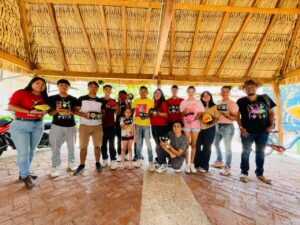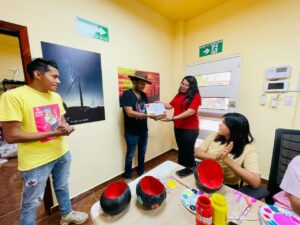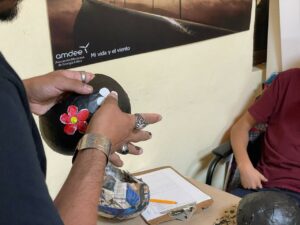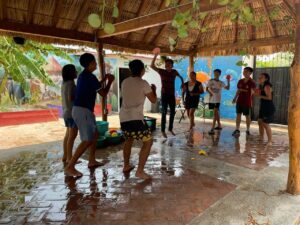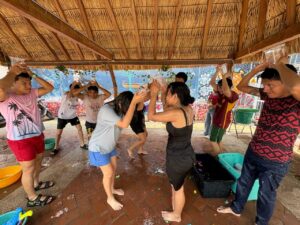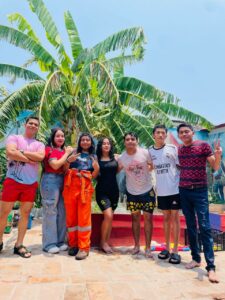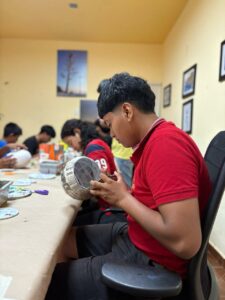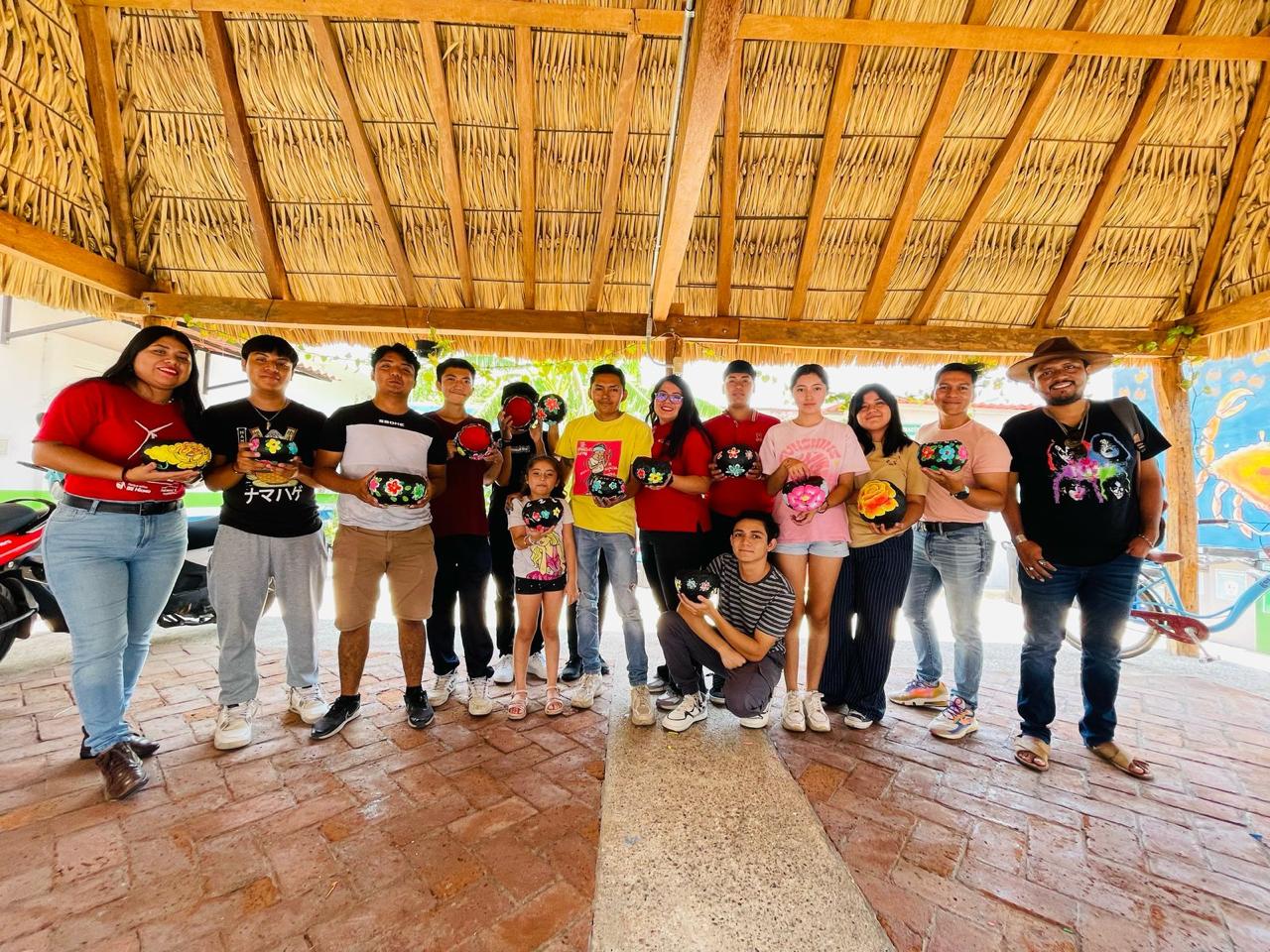The Bií Hioxo wind farm, through the Nacanu’ Bií Community House, hosted the workshop “Jicalpextle Crafting”, which brought together 18 Xquendas volunteers who actively and consistently take part in community initiatives. The workshop was held from April 21 to 24, coinciding with the Easter holiday break.
The Jicalpextle, also known as a “shiny jícara,” has been used for generations in the states of Oaxaca and Chiapas for everyday activities such as serving food, as well as for decorative purposes during traditional celebrations.
These handcrafted pieces are traditionally made from the shell of the calabaza vinatera or the morro fruit, and carry deep cultural and social meaning. However, their use has declined over time and across generations.
In an effort to revive and preserve this tradition, the workshop was led by Pedro Hernández Antonio, a Zapotec artist from Unión Hidalgo.
For this edition, the crafting process was adapted using recycled paper, aligning with GPG’s commitment to environmental sustainability. In the first phase, volunteers cut and glued more than five layers of paper per piece to replicate the shape and firmness of the traditional gourd, then left them to dry under the sun.
The second phase involved painting the jicalpextles using primary colors. The inside was painted red, in keeping with tradition, while the outside was coated in black.
The final decoration consisted of floral designs made using finger painting techniques, forming leaves and petals in various colors. This method pays homage to ancestral techniques that did not rely on paintbrushes for aesthetic expression. Each participant created a unique piece, showcasing their creativity and enhancing their artistic skills.
As a token of appreciation for his talent and dedication to Zapotec culture, the workshop leader was presented with a certificate of recognition and commemorative souvenirs.
“I agreed to lead this workshop because I recognize the valuable cultural work carried out by the Community House. It brings me joy to know that this workshop will later be shared with children. That’s my goal—to ensure that new generations learn about what our ancestors used to do,” explained Pedro Hernández Antonio, Zapotec artist.
To conclude the workshop, water-based team-building activities were held to promote cooperation, respect, empathy, and teamwork, while also strengthening the participants’ physical and mental agility.
The session ended with the Xquendas sharing food and drinks in a friendly and communal atmosphere.
This initiative is part of a broader soft skills development program aimed at empowering volunteers, with the experience to be replicated during the 2025 summer camp in Juchitán, Oaxaca, which will feature singing and various cultural and recreational activities.
